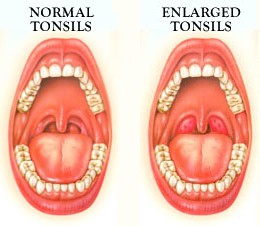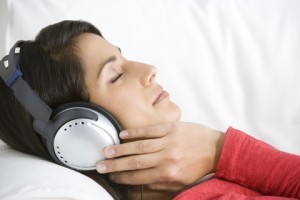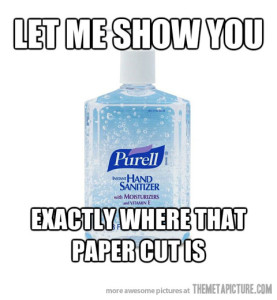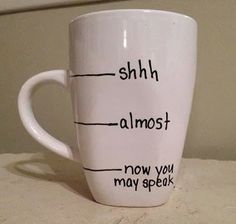 Its that time of year again….the Victoria’s Secret Fashion Show. The moment girls wait for all year. The skinny, “perfect” models strut down the runway. It is nothing but glamorous. But for the women watching, how does this make them feel about themselves? Some love it and it makes them feel like models themselves. But some, on the other hand, go down a different route…
Its that time of year again….the Victoria’s Secret Fashion Show. The moment girls wait for all year. The skinny, “perfect” models strut down the runway. It is nothing but glamorous. But for the women watching, how does this make them feel about themselves? Some love it and it makes them feel like models themselves. But some, on the other hand, go down a different route…
As of now, there is no scientifically proven cause of eating disorders. They’re seen as superficial to many people and are not taken as seriously as the diseases actually are. But that does not mean the media does not have a huge part in it, because it definitely does. Percentages of women who have an eating disorder have increased immensely over the past few years. “More than 5 million American suffer from eating disorders. Five percent of females have anorexia, bulimia or binge eating.” (ADA). These numbers have only gone up since then! Anorexia and bulimia are two of the most common and known eating disorders.
 What does this have to do with the media? Well, the media is obsessed with what the best look is and will do anything to make money off an insecurity. It is almost impossible to go anywhere without seeing an airbrushed model on a magazine or the newest diet that could “make you drop forty pounds in ten days!!” There are unrealistic. If these diets were truthful, then one would have dominated the industry already. (ADA)
What does this have to do with the media? Well, the media is obsessed with what the best look is and will do anything to make money off an insecurity. It is almost impossible to go anywhere without seeing an airbrushed model on a magazine or the newest diet that could “make you drop forty pounds in ten days!!” There are unrealistic. If these diets were truthful, then one would have dominated the industry already. (ADA)
“Mass media provides a significantly influential context for people to learn about body ideals and the value placed on being attractive. (NEDA). Also known as, the media puts the idea in people’s heads that being attractive goes hand in hand with being thin. Over 80% of Americans watch television at least three hours a day, daily. Teenagers, however are always on their phones and come across some form of media approximately 7 hours a day. Teenagers are constantly exposed to these hot models and magazine covers telling them how to get “hot”.
Some sci entists believe that the media has nothing to do with the development of eating disorders, but how can that be true? With the desire to be thin in every direction and now at almost every age, it is almost like if you aren’t thin, you are an outcast. From shows like “The Biggest Loser”, anyone who watches them can be influenced. Even children can watch these shows and question their body.
entists believe that the media has nothing to do with the development of eating disorders, but how can that be true? With the desire to be thin in every direction and now at almost every age, it is almost like if you aren’t thin, you are an outcast. From shows like “The Biggest Loser”, anyone who watches them can be influenced. Even children can watch these shows and question their body.

So does the media actually cause eating disorders? Yes, it can. Teenagers can be influenced by these celebrities and nice bodies and feel so insecure about themselves that they starve themselves to “look like that”. Although it is extremely wrong, it is happening in society today. Companies like Aerie are starting new campaigns where they do not edit their model’s pictures. Maybe this could finally put a stop to this horrible influence on teens.
Works Cited:
2. http://www.anad.org/get-information/about-eating-disorders/eating-disorders-statistics/
4. https://www.nationaleatingdisorders.org/factors-may-contribute-eating-disorders
5. http://www.ulifeline.org/articles/400-eating-disorders-why-do-they-happen


 Deirdre Barrett is the author of “The Committee of Sleep: How Artists, Scientists and Athletes Use Dreams for Creative Problem-Solving-and How You Can, Too” and did an interview with the Scientific American on dreams. She described the scientific definition of a dream as a “narrative experience that occurs during sleep” (Barrett). She was then asked if it is possible to control our dreams, where she said that yes it is possible. She said it depends on what type of dream: lucid, nightmare, etc. To solve a problem in a dream, one must think of that particular problem before they go to sleep. One could also place something next to their bed that would help remind them of the problem, such as a person he/she is in a fight with. Also important, when one wakes up, they mustn’t get right out of bed. They must lay for a second, and the dream will come back to them. Another interesting thing Barrett spoke about was if someone wants to dream of a particular person or experience. You have to get a picture of who you want to dream about, or a specific line they would say (anything relating to them) or the experience you had.
Deirdre Barrett is the author of “The Committee of Sleep: How Artists, Scientists and Athletes Use Dreams for Creative Problem-Solving-and How You Can, Too” and did an interview with the Scientific American on dreams. She described the scientific definition of a dream as a “narrative experience that occurs during sleep” (Barrett). She was then asked if it is possible to control our dreams, where she said that yes it is possible. She said it depends on what type of dream: lucid, nightmare, etc. To solve a problem in a dream, one must think of that particular problem before they go to sleep. One could also place something next to their bed that would help remind them of the problem, such as a person he/she is in a fight with. Also important, when one wakes up, they mustn’t get right out of bed. They must lay for a second, and the dream will come back to them. Another interesting thing Barrett spoke about was if someone wants to dream of a particular person or experience. You have to get a picture of who you want to dream about, or a specific line they would say (anything relating to them) or the experience you had.
 ink-ease, which were little disposable eye protections for your eyes while tanning. Within the past year or so, I stopped wearing eye protection. I recently went to the eye doctor because my sight has gotten so much worse, and I think it is because of the lack of eye protection when tanning. So, I set to find out.
ink-ease, which were little disposable eye protections for your eyes while tanning. Within the past year or so, I stopped wearing eye protection. I recently went to the eye doctor because my sight has gotten so much worse, and I think it is because of the lack of eye protection when tanning. So, I set to find out. When you think about it, people always wear sunglasses to protect their eyes, so why not wear something when tanning indoors? It is the same idea. According to the
When you think about it, people always wear sunglasses to protect their eyes, so why not wear something when tanning indoors? It is the same idea. According to the 




























